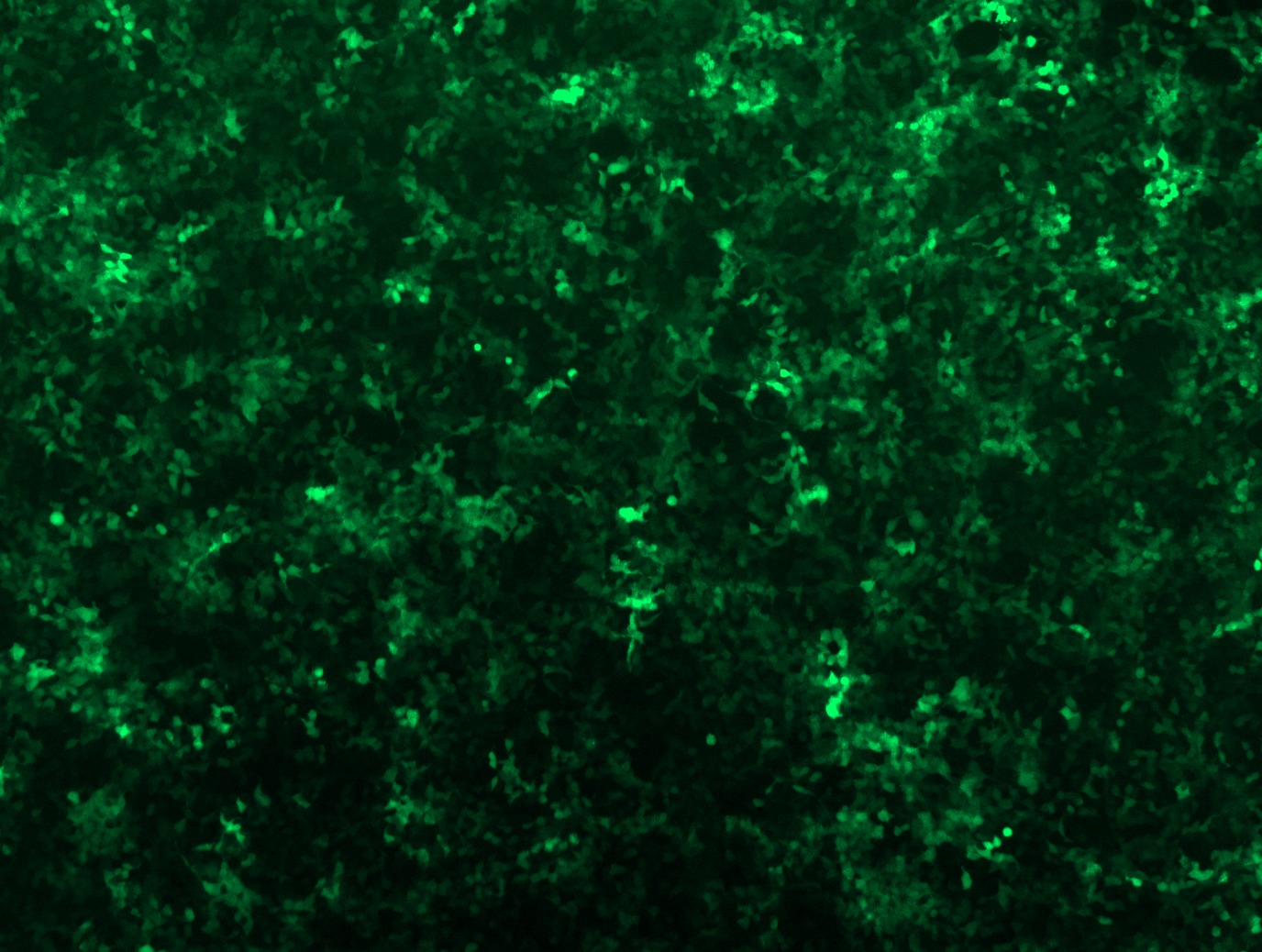Ddb1 Mouse shRNA Plasmid (Locus ID 13194)
Frequently bought together (3)
Other products for "Ddb1"
Specifications
| Product Data | |
| Locus ID | 13194 |
| Synonyms | 127kDa; AA408517; p127-Ddb1 |
| Vector | pGFP-C-shLenti |
| E. coli Selection | Chloramphenicol (34 ug/ml) |
| Mammalian Cell Selection | Puromycin |
| Format | Lentiviral plasmids |
| Kit Components | Ddb1 - Mouse, 4 unique 29mer shRNA constructs in lentiviral GFP vector(Gene ID = 13194). 5µg purified plasmid DNA per constructNon-effective 29-mer scrambled shRNA cassette in pGFP-C-shLenti Vector, TR30021, included for free. |
| RefSeq | BC009661, NM_015735, NM_015735.1, BC002210, NM_015735.2 |
| UniProt ID | Q3U1J4 |
| Summary | Required for DNA repair. Binds to DDB2 to form the UV-damaged DNA-binding protein complex (the UV-DDB complex). The UV-DDB complex may recognize UV-induced DNA damage and recruit proteins of the nucleotide excision repair pathway (the NER pathway) to initiate DNA repair. The UV-DDB complex preferentially binds to cyclobutane pyrimidine dimers (CPD), 6-4 photoproducts (6-4 PP), apurinic sites and short mismatches. Also appears to function as a component of numerous distinct DCX (DDB1-CUL4-X-box) E3 ubiquitin-protein ligase complexes which mediate the ubiquitination and subsequent proteasomal degradation of target proteins. The functional specificity of the DCX E3 ubiquitin-protein ligase complex is determined by the variable substrate recognition component recruited by DDB1. DCX(DDB2) (also known as DDB1-CUL4-ROC1, CUL4-DDB-ROC1 and CUL4-DDB-RBX1) may ubiquitinate histone H2A, histone H3 and histone H4 at sites of UV-induced DNA damage. The ubiquitination of histones may facilitate their removal from the nucleosome and promote subsequent DNA repair. DCX(DDB2) also ubiquitinates XPC, which may enhance DNA-binding by XPC and promote NER. DCX(DTL) plays a role in PCNA-dependent polyubiquitination of CDT1 and MDM2-dependent ubiquitination of TP53 in response to radiation-induced DNA damage and during DNA replication. DCX(ERCC8) (the CSA complex) plays a role in transcription-coupled repair (TCR). May also play a role in ubiquitination of CDKN1B/p27kip when associated with CUL4 and SKP2 (By similarity). The DDB1-CUL4A-DTL E3 ligase complex regulates the circadian clock function by mediating the ubiquitination and degradation of CRY1 (PubMed:26431207). DDB1-mediated CRY1 degradation promotes FOXO1 protein stability and FOXO1-mediated gluconeogenesis in the liver (PubMed:28790135).[UniProtKB/Swiss-Prot Function] |
| shRNA Design | These shRNA constructs were designed against multiple splice variants at this gene locus. To be certain that your variant of interest is targeted, please contact techsupport@origene.com. If you need a special design or shRNA sequence, please utilize our custom shRNA service. |
| Performance Guaranteed | OriGene guarantees that the sequences in the shRNA expression cassettes are verified to correspond to the target gene with 100% identity. One of the four constructs at minimum are guaranteed to produce 70% or more gene expression knock-down provided a minimum transfection efficiency of 80% is achieved. Western Blot data is recommended over qPCR to evaluate the silencing effect of the shRNA constructs 72 hrs post transfection. To properly assess knockdown, the gene expression level from the included scramble control vector must be used in comparison with the target-specific shRNA transfected samples. For non-conforming shRNA, requests for replacement product must be made within ninety (90) days from the date of delivery of the shRNA kit. To arrange for a free replacement with newly designed constructs, please contact Technical Services at techsupport@origene.com. Please provide your data indicating the transfection efficiency and measurement of gene expression knockdown compared to the scrambled shRNA control (Western Blot data preferred). |
Documents
| Product Manuals |
| FAQs |
| SDS |
Resources
| RNAi Resources |
{0} Product Review(s)
0 Product Review(s)
Submit review
Be the first one to submit a review
Product Citations
*Delivery time may vary from web posted schedule. Occasional delays may occur due to unforeseen
complexities in the preparation of your product. International customers may expect an additional 1-2 weeks
in shipping.






























































































































































































































































 Germany
Germany
 Japan
Japan
 United Kingdom
United Kingdom
 China
China


![GFP signal was observed under microscope at 48 hours after transduction of [TL516223C] virus into HEK293 cells. [TL516223C] virus was prepared using lenti-shRNA [TL516223C] and TR30037 packaging kit.](https://cdn.origene.com/assets/images/rnai/shrna-lentiviral-particle/100/tl516223vc.jpg?d=110x110)
![GFP signal was observed under microscope at 48 hours after transduction of [TL516223D] virus into HEK293 cells. [TL516223D] virus was prepared using lenti-shRNA [TL516223D] and TR30037 packaging kit.](https://cdn.origene.com/assets/images/rnai/shrna-lentiviral-particle/100/tl516223vd.jpg?d=110x110)